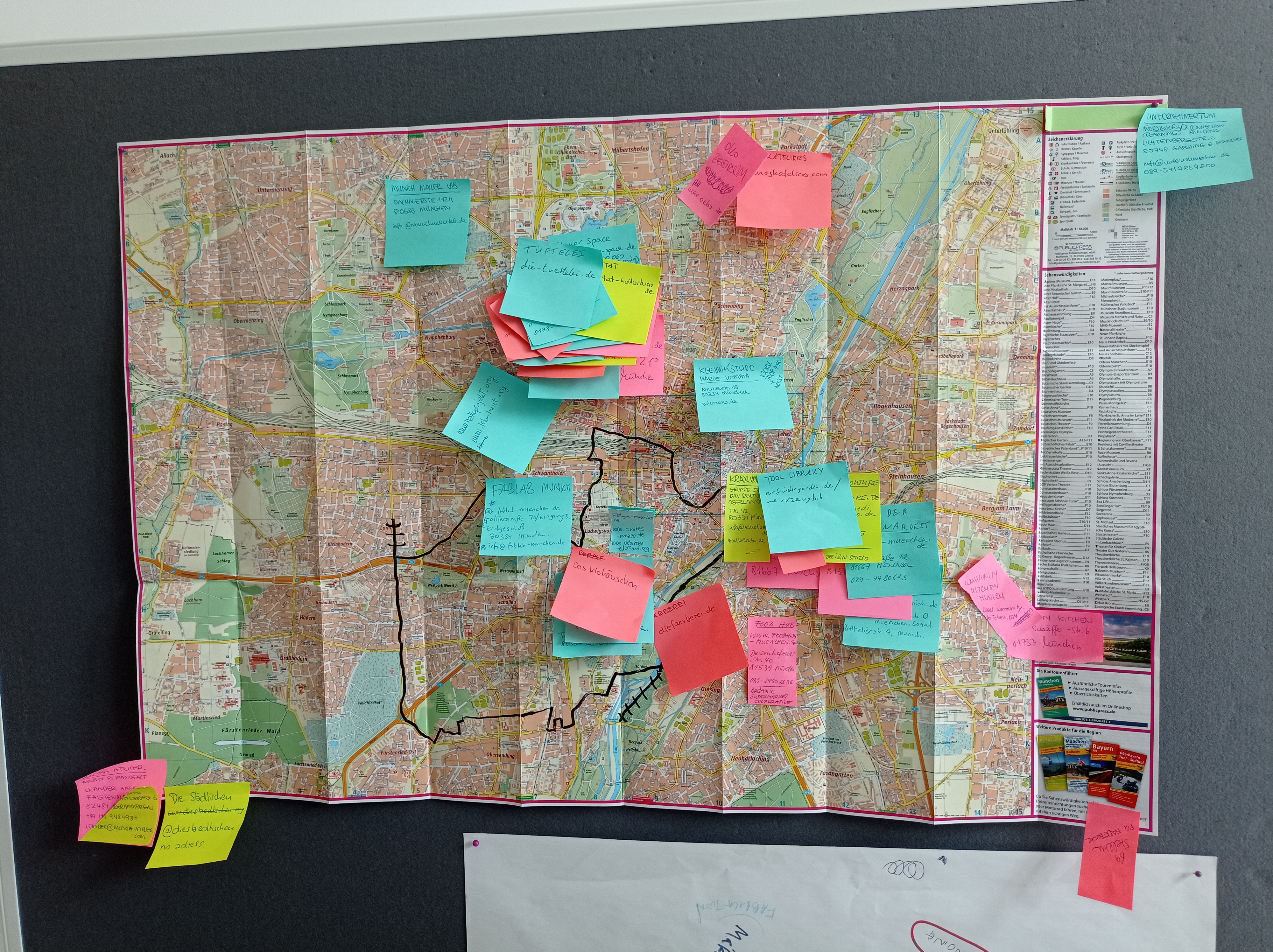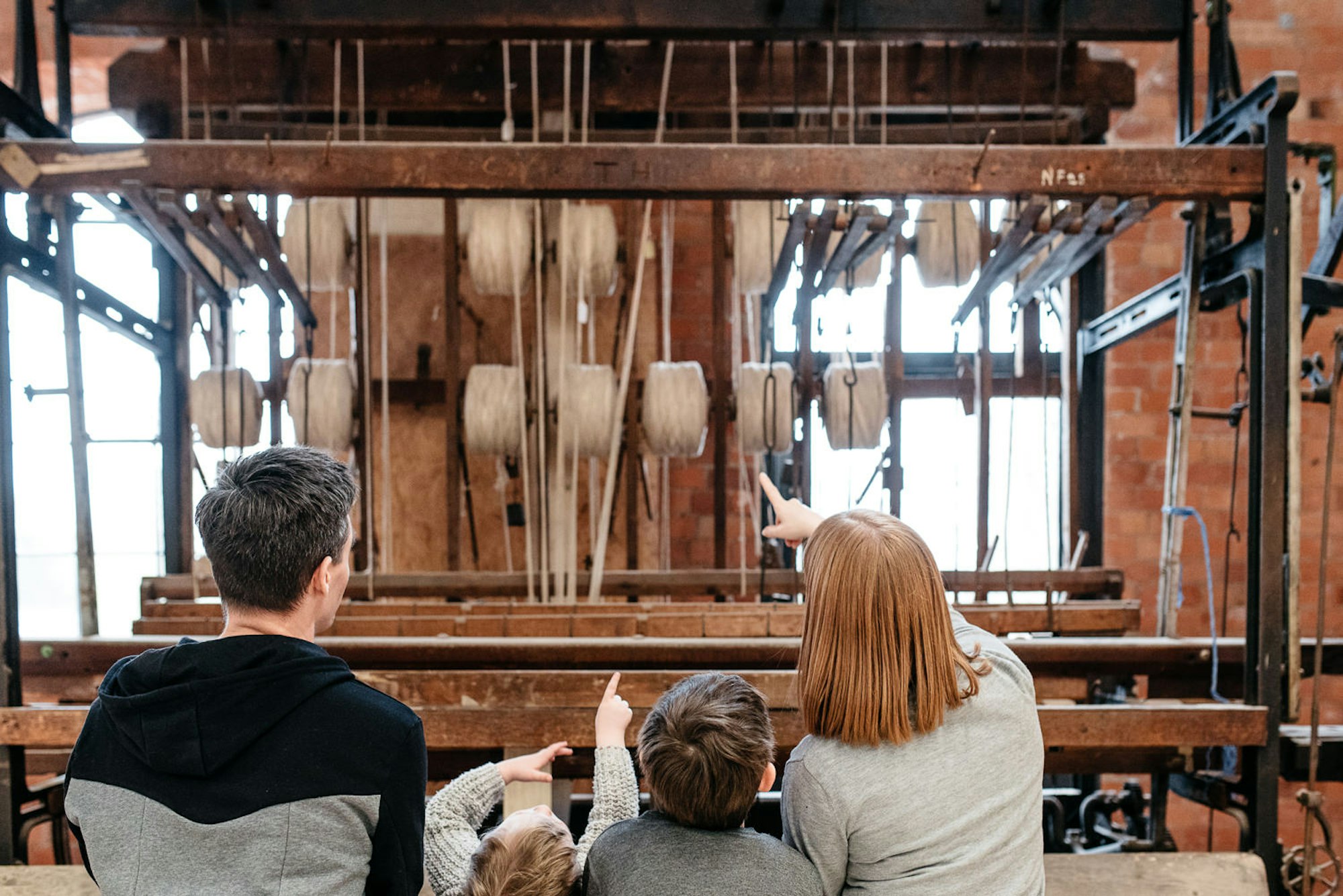Tips for textile production
Textile designer, Laura Spring on small-scale production and the outsourcing of larger batches in a small creative business.

Laura is a graphic designer by training and has combined this specialism with an enthusiasm for screen-printing. She manufactures small batches of her products in-house at her Glasgow studio, and larger orders with British manufacturers selected for their quality and economy.
Make Works asked Laura to tell us about starting up a small scale production business, and to tell us a little about the challenges of finding and working with manufacturers.

I think that for anyone starting a creative business the main hurdles stem from learning how to turn a creative idea into a profitable one that keeps you fulfilled but still puts money in the bank at the end of the month. You are probably juggling many other things when you start out including your time and money.
Your time is the most valuable thing you have, and never underestimate how precious it is. It’s sometimes very hard to say no to things, but it’s something I learnt probably after my first year of trading. Once you’ve made a product and things start moving, things can start coming at you (which is great don’t get me wrong!) but it’s important that you start to make decisions about what the right thing is for you, your business and your future. If you’re not sure about something then I tend to always trust my gut. Maybe that’s not very business minded, but you have to tune in to what it is you want out of your business, and everyone’s dreams are different. There is no right way; you just have to learn to listen to yourself. Often when I‘ve gone against my gut it’s not always worked out to be the best decision, but sometimes you only learn this by making these mistakes.

Mistakes. We all make them and I think they’re a really important part of running a business because you learn so much from them. Maybe it’s a product that went wrong, or a show that didn’t turn out to be what you expected. It’s important to keep trying new things and to push yourself so you have to be prepared to get things wrong now and again. Getting it wrong is okay, the important thing is the recovery. A cliché perhaps but I think it’s very true. Don’t stick your head in the sand about it, deal with it head on and move forward.
It’s also important to remember that a lot of running a business involves dealing with people, so I think it’s crucial to develop good communication skills.

Take help from others. Don’t be afraid to admit you’re tired/stressed/confused/broken! There’s a lot of (free!) support out there for new businesses both in Scotland and further afield so use them to your advantage. Getting onto a mentoring program (in my case Fashion Foundry) was pivotal for my business and me. It allowed me to break things down and address where I was at, and what I needed to do to take my business forward. I was at that crucial stage where I’d made something, it was out there, I had customers, but it was still just me doing everything – designing, printing, sewing, posting orders… and all the rest.
Scaling up - build relationships. The biggest change I made was to get help with the making of my products. I quickly realised my passion wasn’t in the production of 100 of the same product; I love to print and design and make perhaps one or two of things, but not 200. Scaling up was possibly one of the trickiest things I’ve ever done and I think in order to do this successfully you need to go and meet people.
In the digital world of emails today, we sometimes forget this, but if you start to work with a manufacturer I can’t stress enough how important it is to go and meet them face-to-face. They have a lot of expertise and it’s often easier to show them a sample of what you’re trying to do instead of explaining it over the phone or computer. It’s also important to understand how their operations work, what other skills they might have, and to be sure that they can do what they say they can do. Of course it’s not always possible to visit them if they are a few hundred miles away, but working with manufacturers and suppliers is all about building relationships. You need each other and can learn from each other so find out how they like to work and make it an easy relationship from the word go. I’m not saying it will always be plain sailing but you need to be on the same side – especially when problems crop up.

Working with a manufacturer isn’t for everyone though. Perhaps you enjoy that part of the ‘making’? There’s no right or wrong way to run a business, or a magic formula we all work to, it all comes from you and what you want. However, if you are making everything, you need to make sure that you have an end price that reflects this, ensuring that it's viable for you to make everything. It all depends on what you’re making…you need to ask yourself these questions.
Ultimately I think it’s all about finding a balance and understanding what you want. Make plans, write down your goals and dreams! There’s something really liberating about writing down where you want to be in 5 years time on a piece of paper, it kind of stares back at you and reminds you of why you’re doing what you’re doing. Especially on the days where you question it all! It’s a natural part of the process so don’t panic. We’re basically all on a rollercoaster and many days are brilliant, but some days are definitely a bit of a test. If you love what you do then those ‘testing’ days won’t defeat you for very long.
You can check out Laura Spring's website here
If you're a small scale designer and you're looking for garment production check out Kalopsia Collective
Heriot Watt Facility have open access facilities if you would like to make something yourself and need access to a workshop and machines (including screen-printing, knit and weave)
Emily Millichip can produce prototypes and mock ups, Be Fab Be Creative and CAT Centre are great for short runs of digitally printed fabric.
If you're looking for packaging and labels check out The Glasgow Press and The Hunter Press
If you have any trouble sourcing fabricators or facilities email studio@make.works and we'll do our best to help.
Useful organisations with support for starting a creative business in Scotland:
The Cultural Enterprise Office (they run Starter for Six and Fashion Foundry)
Categories
Article
Related stories
Why Make Work Locally
Alan Moore and Ten30 Fashion
Tips for Manufacturing in Scotland
A Life in Lace
In the Belly of the Beast: my one year manufacturing for Coca Cola



